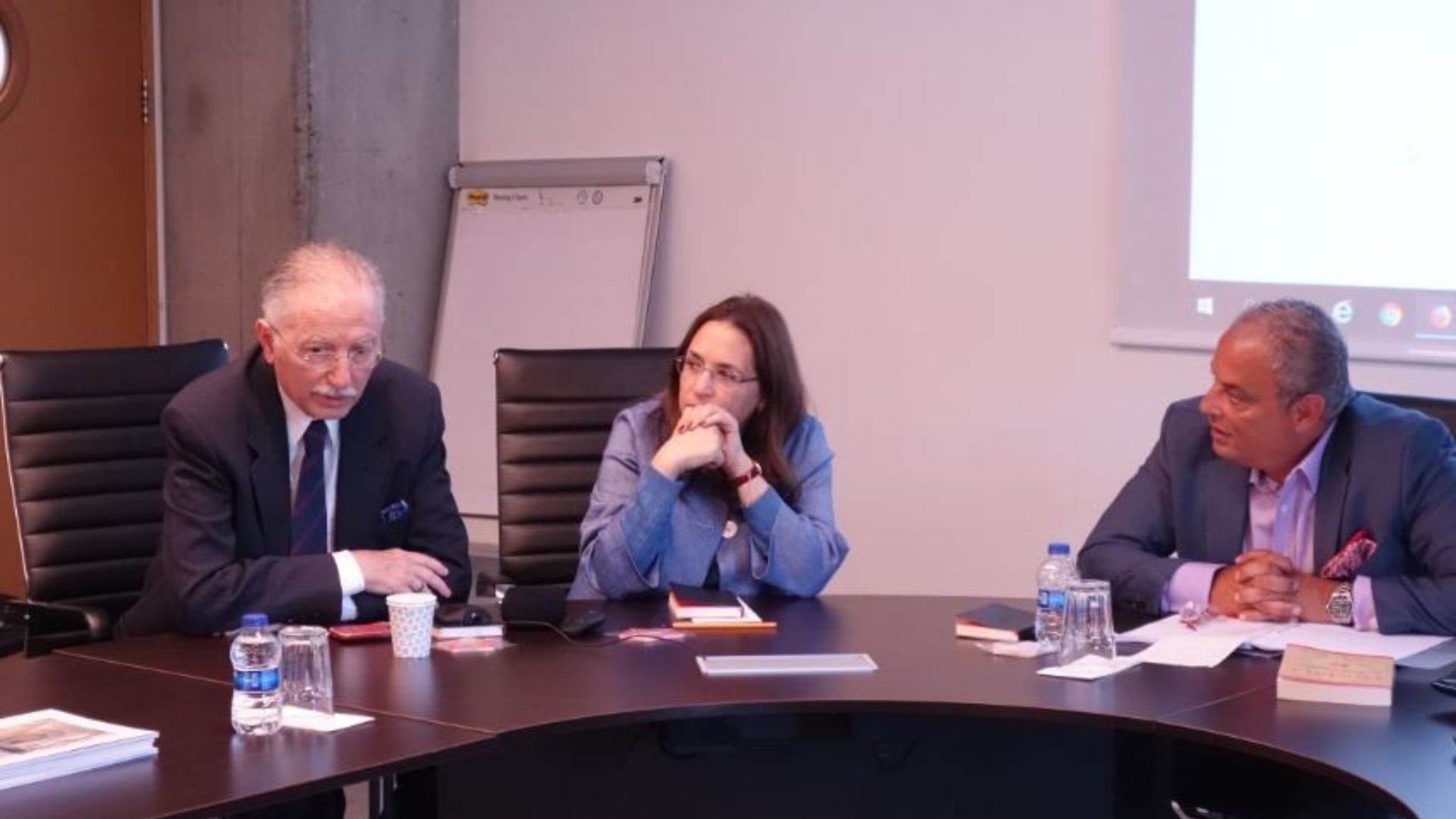Professor Safwan Masri, Executive Vice President for Global Centers and Global Development at Columbia University, spoke on “Shifting Power Dynamics in the Middle East: Prospects for Democracy and Pluralism” at Istanbul Bilgi University on April 30, 2019. He was joined by Ipek Cem Taha, Istanbul Center Director; His Excellency Ekmeleddin İhsanoğlu, Istanbul Center Advisory Board Member; and Hasret Dikici Bilgin, Associate Professor at Istanbul Bilgi University.
In this talk, Professor Safwan Masri discussed recent regional events, prospects for democratic and pluralistic societies in the region, and how regional and global actors are vying to fill a leadership void. Events of the so-called “Arab Spring” appeared to challenge long-held convictions that the Middle East and North Africa region was immune to democratization. Elections in Tunisia and Egypt, electoral reform in Jordan and Morocco, and Libya’s perceived democratic transition left observers optimistic that pluralism and democracy were within reach for millions across the region. Such hopes have been crushed, however, as Egypt is back in the throes of a military dictatorship that is more oppressive than Mubarak’s; Libya, Syria, and Yemen are entangled in protracted civil wars; and reforms in the Arab Spring’s peripheral countries have proven to be superficial, at best. Excitement over the recent removal from power of Omar Al Bashir in Sudan and Algeria’s Abdelaziz Bouteflika has been tempered by the resilience of ancien regimes and the domination over state affairs by the countries’ respective armies. Only Tunisia serves as a success story and a source of hope and inspiration. In the meantime, Riyadh, Abu Dhabi, and Doha, emboldened by petrodollars, have replaced historic centers of gravity in Cairo, Damascus, and Baghdad, and have competed for influence throughout the region.

